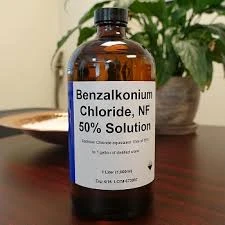diethylene triamine penta
Understanding Diethylene Triamine Penta (DTPA) A Key Chemical in Various Industries
Diethylene Triamine Penta (DTPA) is a versatile chelating agent used widely across different industrial applications. Its unique molecular structure enables it to effectively bind metal ions, which makes it invaluable in sectors ranging from agriculture to wastewater treatment. This article aims to explore the composition, applications, and significance of DTPA in various industries.
What is DTPA?
DTPA, an abbreviation for diethylene triamine pentaacetic acid, is a pentadentate ligand with the chemical formula C10H19N3O10. This chemical belongs to a group known as aminopolycarboxylic acids, which play a crucial role in complexing metal ions. The presence of multiple carboxylic acid groups allows DTPA to form stable complexes with various metal ions, including calcium, magnesium, and heavy metals like lead and cadmium. The ability to form such stable complexes is what makes DTPA an essential ingredient in numerous formulations.
Applications of DTPA
1. Agriculture
In agriculture, DTPA is primarily used to enhance the availability of micronutrients. Many essential elements for plant growth, such as iron and manganese, often exist in forms that are not readily accessible to plants. DTPA helps solubilize these micronutrients, making them more available for plant uptake. Consequently, DTPA is often utilized in fertilizers and soil amendments to increase yield and improve crop quality.
2. Water Treatment
DTPA has significant applications in water treatment processes. It is particularly effective in removing heavy metals from wastewater, which is crucial for environmental protection. By binding to toxic metal ions, DTPA facilitates their removal and prevents them from re-entering the ecosystem. This process is vital for industries that create effluents containing hazardous substances, ensuring compliance with environmental regulations.
3. Pharmaceuticals
diethylene triamine penta

In the pharmaceutical industry, DTPA plays a role in drug formulations and diagnostics. Its chelating properties make it useful for radiopharmaceuticals, which are used in medical imaging and cancer treatment. DTPA can help stabilize radioactive isotopes, allowing for better imaging quality and efficacy in therapeutics. Additionally, it serves as an antidote for certain heavy metal poisonings, such as lead and mercury, by facilitating their excretion from the body.
4. Cosmetics
DTPA is also found in various cosmetic products, where it acts as a stabilizing agent. Its ability to bind metal ions helps prevent the degradation of active ingredients, thereby prolonging the shelf life of cosmetic formulations. Furthermore, DTPA's chelating properties can enhance the overall effectiveness of these products, offering consumers safer and more effective choices.
5. Industrial Cleaning
In the industrial sector, DTPA is employed in cleaning formulations to enhance the removal of metal ions from surfaces. These applications are critical in ensuring equipment and machinery are free from corrosive metal deposits, which can lead to malfunctions and decreased efficiency. Moreover, DTPA contributes to the overall effectiveness of detergents and cleaners, making them more efficient in various cleaning tasks.
Significance of DTPA
The significance of DTPA can be judged by its wide-ranging applications across various industries. Its ability to effectively chelate metal ions makes it a critical agent in agricultural practices, contributing to food security by enhancing crop yields. In environmental contexts, its role in wastewater treatment helps mitigate pollution, promoting a healthier ecosystem.
Furthermore, in the medical field, DTPA is crucial in both diagnostics and treatment, demonstrating its importance in public health. The versatility of DTPA extends to cosmetics and industrial cleaning, showcasing its multifaceted nature.
Conclusion
In summary, diethylene triamine pentaacetic acid (DTPA) is a vital chelating agent with broad applications in agriculture, pharmaceuticals, water treatment, cosmetics, and industrial cleaning. Its ability to bind metal ions effectively addresses various challenges in these sectors, making it an essential component in promoting agricultural productivity, environmental safety, and public health. As industries continue to evolve, the relevance of DTPA is likely to grow, underscoring its importance in modern science and industry.
-
Understanding Polycarboxylic Acids: Properties, Applications, and Future PotentialNewsJul.28,2025
-
Scale Inhibitor Explained: How to Protect Your System from Limescale and Hard Water DamageNewsJul.28,2025
-
Scale and Corrosion Inhibitors: Essential Chemicals for Industrial Water System ProtectionNewsJul.28,2025
-
Polyaspartic Acid: A Biodegradable Polymer for Sustainable ChemistryNewsJul.28,2025
-
Isothiazolinones: A Versatile Antimicrobial Class with Industrial Power and Regulatory ChallengesNewsJul.28,2025
-
A Deep Dive into 2-Phosphonobutane-1,2,4-Tricarboxylic Acid (PBTC)NewsJul.28,2025





